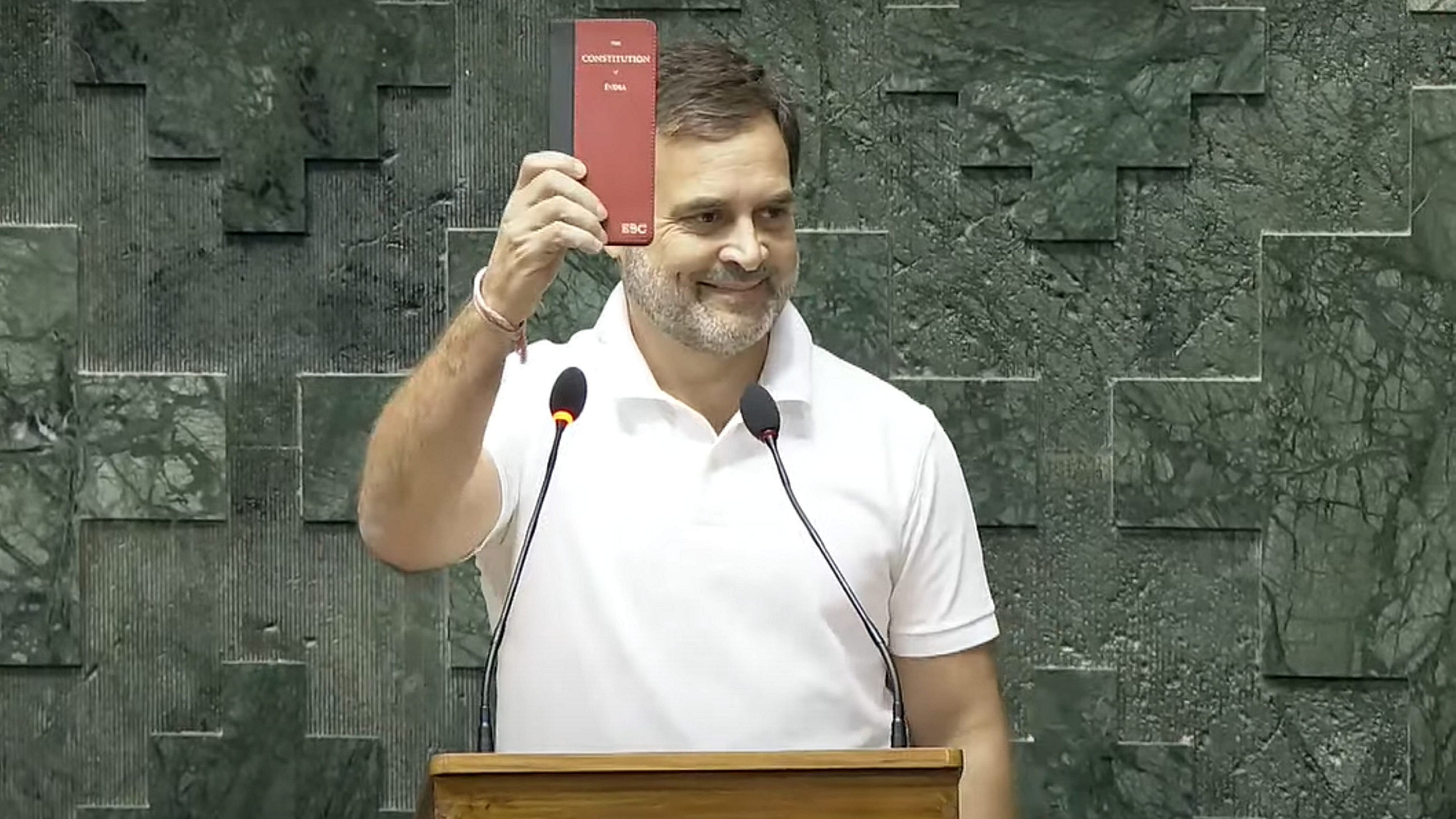
Congress MP Rahul Gandhi shows a copy of the Constitution of India as he takes oath as a member of the House during the first session of the 18th Lok Sabha, in New Delhi on June 25, 2024.
Credit: PTI Photo
Congress leader Rahul Gandhi’s assumption of the mantle of the Leader of the Opposition in the 18th Lok Sabha is both a challenge and an opportunity for him and the party. It is the first constitutional position that he holds in his two decades of political career, and the first time in 10 years that the Congress gets the position.
Leadership came naturally to him as a dynastic legacy and privilege, but he had to prove his credentials the hard way all these years to a greater extent than other political dynasts. His habit of shying away from responsibility did not help, especially when politics became harsher and demanding, and there was greater public scrutiny.
He must live down the image of the non-serious politician and has to prove himself as an effective politician and parliamentary leader. The position of the Leader of the Opposition gives him the opportunity. Gandhi’s speech in Parliament on Wednesday, where he stressed that the ‘voice of India’ must be heard in the House, is a promising start.
Opposition leaders in the past such as C M Stephen, Atal Bihari Vajpayee, and Sushma Swaraj have set a high bar and Gandhi will have to live up to those standards.
India’s Parliament has a history of strong Opposition performance except in the recent past. The Opposition’s strength is now closer to that of the treasury benches than it was in 2019, and he can make a mark if he uses Parliament’s tools and rules effectively to hold the government to account for its policies and decisions.
Gandhi will have to lead the efforts and that calls for discernment, application, and a mastery of rules and procedures which he should earn. By virtue of his position, he will have responsibilities that include participation in committees that decide on the appointment of constitutional functionaries like the chief election commissioner, election commissioners, chief vigilance commissioners, CBI director, etc.
These are impactful positions in a parliamentary system which can be used to uphold public interest, focus on the government’s accountability to Parliament, and put pressure on it to act right and fair.
Parliament has become more confrontationist in the last few years mainly because of the preponderance of the ruling side, and its reluctance to accommodate the Opposition.
Even in the current Lok Sabha, the government has not shown signs of being less harsh on the Opposition. It has a parliamentary agenda that includes legislation on ‘One Nation, One Election’ (ONOE) and delimitation of constituencies, which are both controversial.
Gandhi, as the Leader of the Opposition will have a crucial role in shaping the debates, and their outcome on these and other matters. He also can show that rules and reason are more effective than sound and fury in making the Opposition heard by the government and the nation.